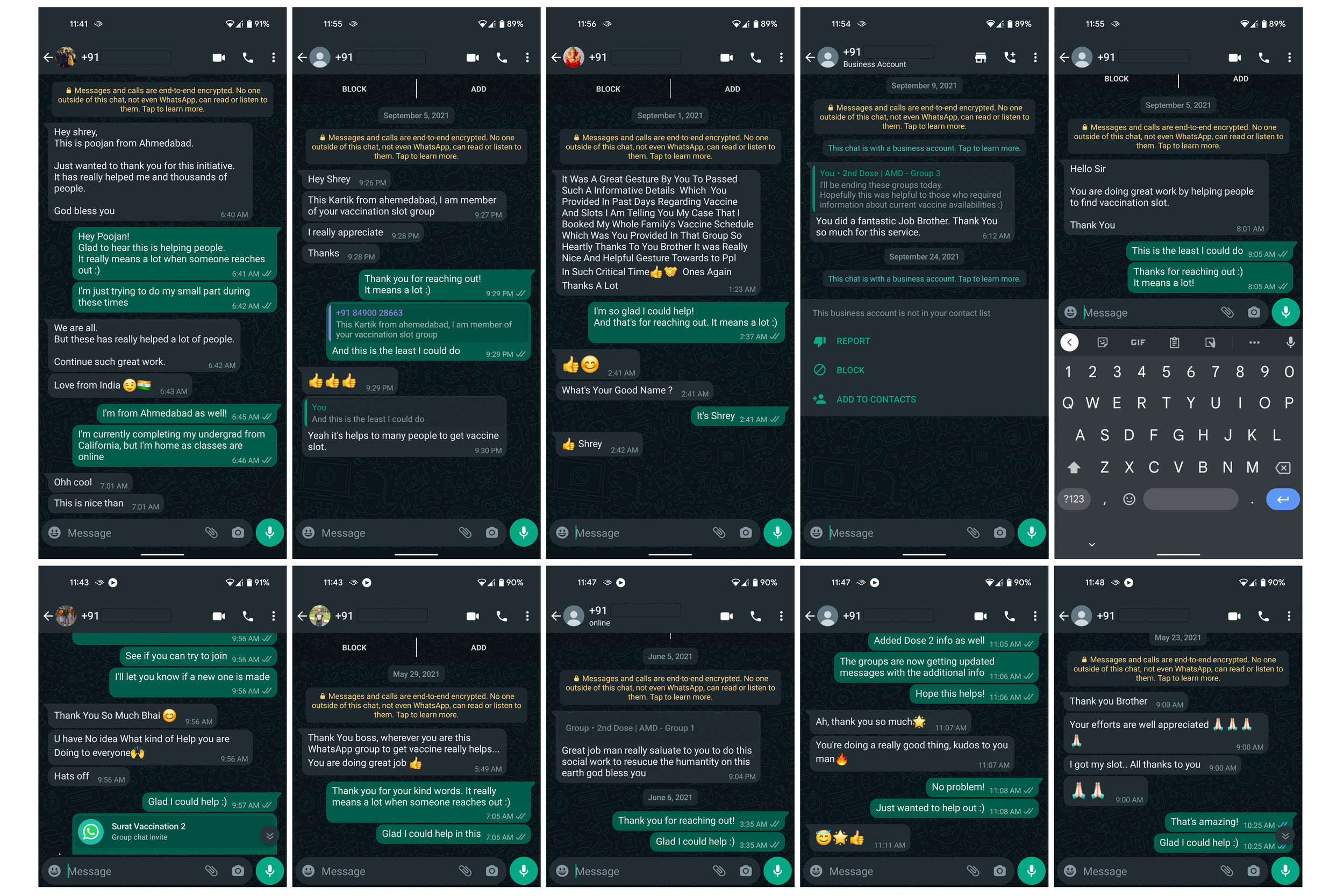Covid-19 Vaccination Program
In essence, the Python program sent an API request every 3 seconds and parsed the JSON it got in return. It goes through every available center in the district, and selects those instances that have availabilities over a set amount, and has the minimum age requirement over 18.
Once such a list is created, it crafts an easily readable message with the information it has and sends it to the corresponding group - as shown here.
The primary reason I used WhatsApp as the messenger was the ease others would have to join. Platforms such as Telegram seemed to have better options for integrating automated messaging, but then downloading a new app and setting up their profile is a new hurdle for people to join. On the other hand, WhatsApp is an extremely common messaging app in India, and the only step one would have to do is click the link to join.
As time went on, this idea spread rapidly and I had to make numerous groups to manage all the traffic. It slowly made its way to other cities, and I started groups for them as well. At a point, this program was sending Vaccine information to 12 separate groups, that had around 3000 people.
I never thought I may be able to do something that may affect the real world before I finish college, but after helping a few thousand people during the Covid-19 pandemic, I've learned that anything is possible.
In the first quarter of 2021, the Government of India started providing vaccinations for the virus to those at the forefront of the effort - Doctors, Nurses, Teachers and others involved in the medical field.
It took a while for the general population to start getting their shots, which began in May. However, it wasn’t really easy getting these Government resources out to everyone that needed them.
As soon as new slots for the Vaccine opened up, every option was booked within a minute or two. The ministry of health had a useful website set up to book your slot, however, as they opened up once per day, some people - scalpers - went ahead and booked each slot within the first few minutes, and sold each spot away for a small price.
It was infuriating at first, but I knew there had to be a way around this.
I came across the API directory for the health ministry, and worked on setting up a program that checked the slot availability a few times every minute in my district, and by that night I had already booked an appointment for myself.
Like any other programming project, I encountered numerous problems that I had to solve on the fly. The parameters of requesting the data kept changing, and the output had different information as the health ministry made changes/improvements to their data. There were a few days where keeping up and managing the project seemed like a daunting task, but every day multiple people reached out and explained how helpful the timely notifications have been to them and their families. Each of these made me realize the scope of what I was doing.
As each individual member would get their slot, they would exit from the group - hence making space for new members to join. Over the course of the few months where the program was active, we had around 200-300 people cycling through these groups per day.
In total around 30,000 separate members have joined and left the group, and I am happy that I found a way to make a small difference when help was required. People my age studying in medical colleges went out every day to test and check up on patients. I had known some of them since we were in elementary school together. If they are out there putting in efforts to help those who need it, then what’s stopping me?
Featured on the UC Davis College of Engineering website and the UC Davis Computer Science website.
https://engineering.ucdavis.edu/news/uc-davis-student-builds-covid-19-vaccine-appointment-notification-system-increase-vaccination
https://cs.ucdavis.edu/news/uc-davis-student-builds-covid-19-vaccine-appointment-notification-system-increase-vaccination



